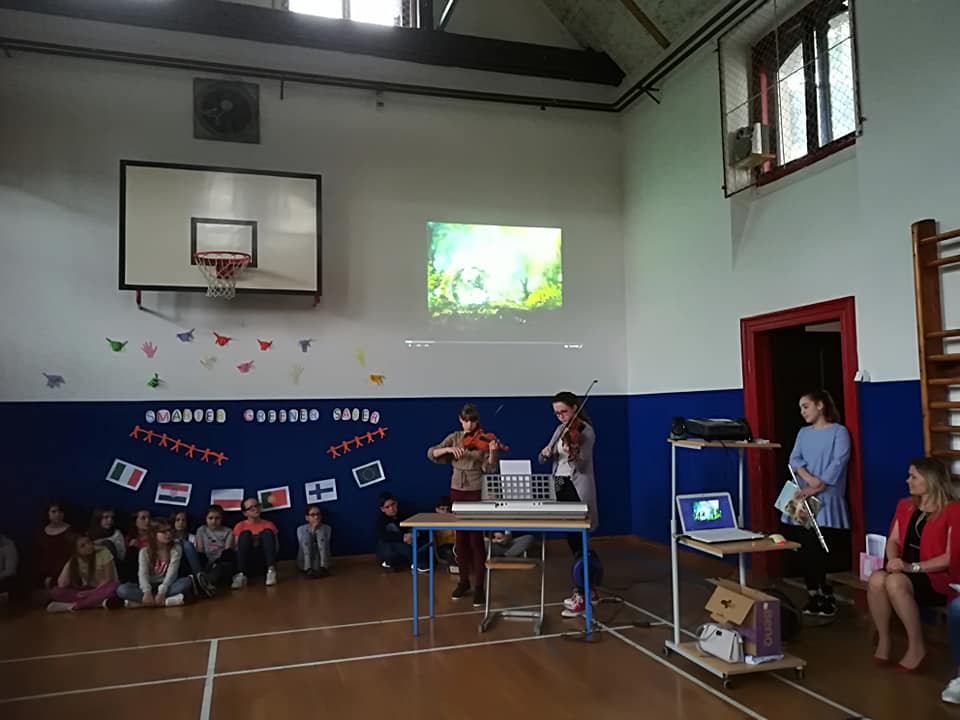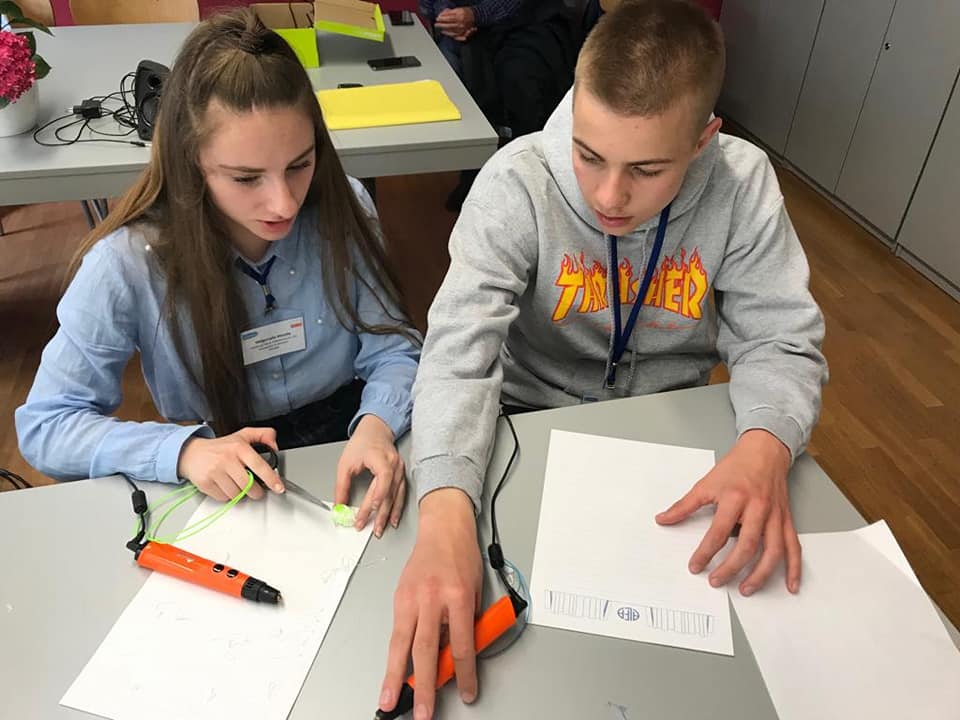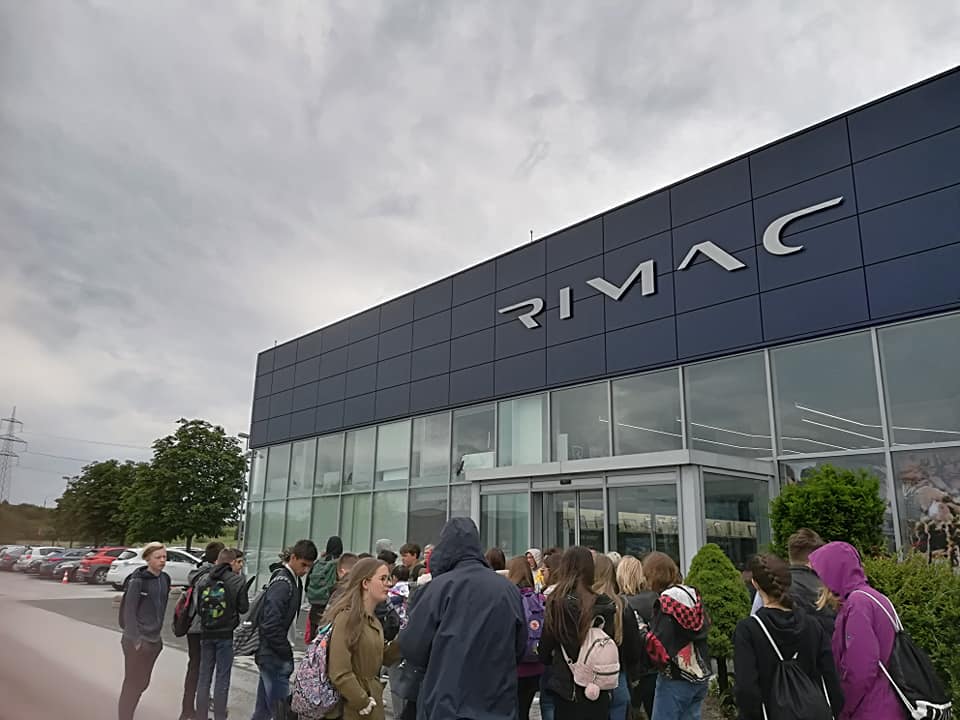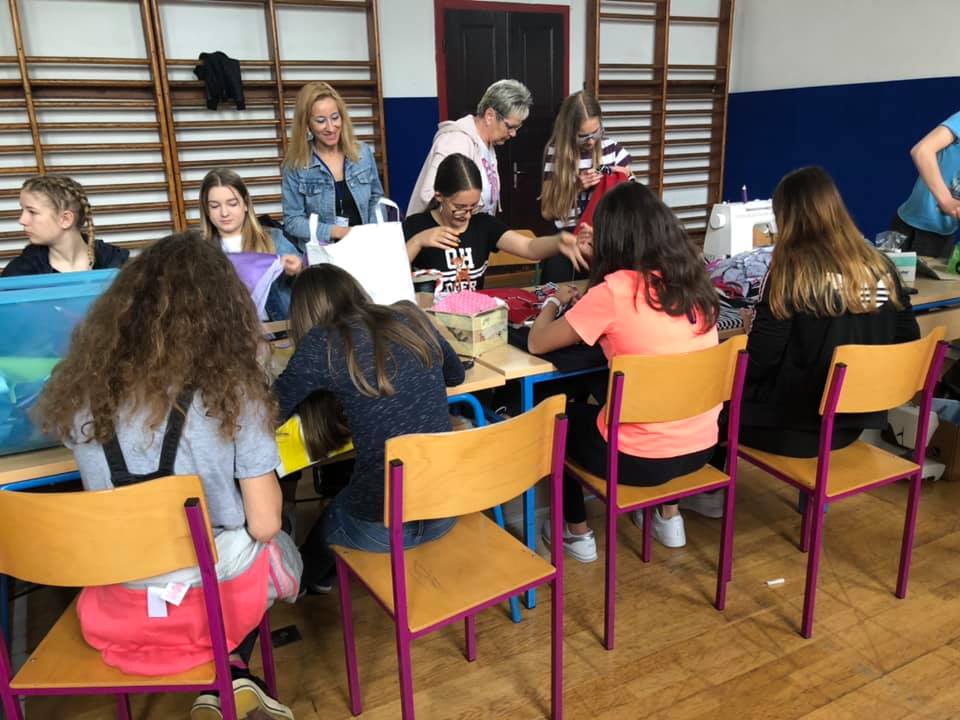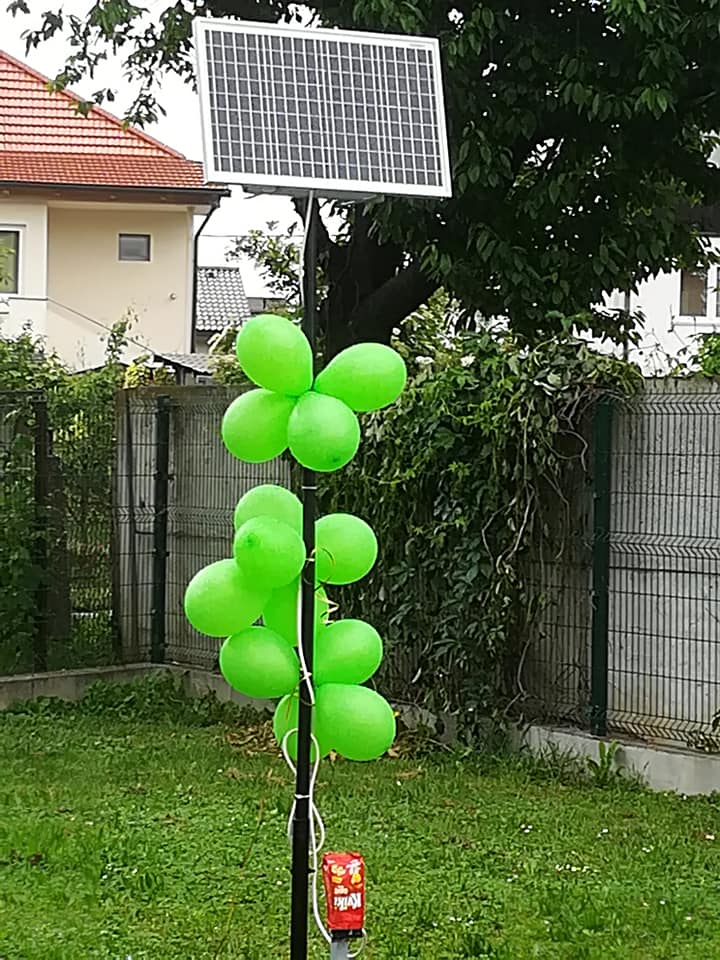The short-term exchange hosted by l. osnovna škola Čakovec, Croatia took place on 26-31 May 2019. Each partner school was represented by 4 or 5 students and 2 or 3 teachers. In total, there were 18 students (aged 13-14) and 9 teachers from 4 partner schools. The students were selected on the basis of initial regulations set in all partner schools. The teachers were mainly Science, Biology, Geography, Maths, English, IT, PE teachers and others taking active part in the project implementation. The main theme of the first exchange was: GREEN ENTREPRENEURSHIP - Scientific/entrepreneurial skills incorporated by the use of newest technologies. The main objective of the activity was to exchange environmental experience and combine it with entrepreneurial skills, also with the use of newest technologies. The following activities took place:
- exchange students prepared the 4th part of Green E+Dictionary, peer-to-peer interactive videos containing instructional material on newest technologies used for entrepreneurial purposes e.g. planning and managing ‘green business’. Each team prepared 2 videos, they were presented and shared by all partners during the meeting. The entries of the Green E+Dictionary explain the basic issues concerning environmental protection and suggest green entrepreneurial ideas. The videos were compiled as one of the final project results.
- the students worked out the next part of Greenpreneur’s Book (GREEN ENTREPRENEURSHIP – working out a ‘green business plan’ with the use of the newest technologies), they worked in international groups using collaborative problem solving method; they worked out suggestions for eco-friendly houses, where they could use their scientific and entrepreneurial skills gained under the project; the outcomes of international groups’ work became part of the main project product
- out-of-classroom eco event; students visited Accredo Adrenaline Park, they worked in international teams cooperating together and solving problems in a collaborative way; the students collaborated to design a waste dumpster and disseminate the green issues
- the participants took part in eco workshops for students and teachers conducted by IT teachers on practical usage of newest technological gadgets (3D printer, microbit) to design eco objects; eco workshop for students by Environment Protection Organisation Nobilis Croatia took place (making bird houses)
- Green Business – in cooperation with Humana Nova (a social business, fighting textile waste and unemployment of the disabled) students produced simple objects out of recycled materials; designing a waste dumpster required collaborative work and promoted eco attitude
- the international team opened the Green Energy Park in the schoolyard; designing and constructing simple innovative ecological devices throughout the project helped develop collaborative problem solving sills and strengthened students’ ecological awareness
- the exchange participants visited a local company Rimac Automobili- a technology powerhouse, manufacturing electric hypercars and providing full technology solutions to global automotive manufacturers; the participants learned how newest technologies combined with eco solutions contribute to environmental protection
- the participants learned about ways of preserving natural heritage in other European countries and in different eco-systems while visiting neighbouring natural sites and planting trees; a visit to the Varaždin City Museum fostered biodiversity education
The final mobility strengthened the international integration of the project group. It emphasised the need for international collaboration to act for the benefit of natural environment as different countries have varied experience and possess varied facilities. Learning about other cultures, boosting linguistic competences were additional benefits of the cooperation. The teachers taking part in the meeting started summarizing the project activities implemented so far, commenting upon the effectiveness, evaluation and dissemination procedures. Croatian students (aged 13-14) and teachers from the host school attended all the activities. Students’ parents got actively involved and local authorities supported the activities.
